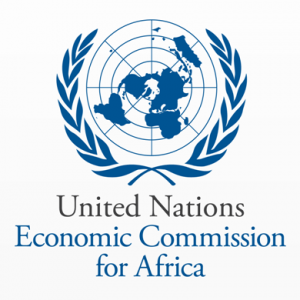Need to review African states’ bilateral investment treaties – ECA
 The UN Economic Commission for Africa (ECA) says reviewing bilateral investment agreements in Africa, most of which favour investors and leave little to show for African states, will offer better value and more meaningful investment for African states.
The UN Economic Commission for Africa (ECA) says reviewing bilateral investment agreements in Africa, most of which favour investors and leave little to show for African states, will offer better value and more meaningful investment for African states.
A recent study by the ECA “Investment Policies & Bilateral Investment Treaties in Africa: Implications for Regional Integration” has found while African countries have signed numerous Bilateral Investment Treaties (BIT) and Double Taxation Treaties (DTT) in the hope of improving their economies, most of the investment treaties were signed a long time ago and tend to favour the investor, leaving African states battling investment disputes and not much to show for the investments made.
According to a statement by the ECA, the report launched on April 2 in Addis Ababa during Africa Development Week, is based on a survey of 37 countries, and advances that one third of all bilateral investments treaties globally – currently estimated at over 3,000 – are signed by African countries.
“The report clearly reveals that investment plays a key role in promoting economic growth, sustainable development and financing development projects. However, the findings also note the ambiguity between investments and Bilateral Investment Treaties (BITs) and further point out that the impact of these on economic growth in Africa remains debatable.”
“There is simply no conclusive evidence on the effect on Foreign Direct Investment,” the ECA said in the statement.
An excerpt from the report says: “Many respondents indicated that investment treaties do not necessarily bring in much investment and pointed out that BITs may be politically motivated, and that recently more investment is coming from countries without a BIT (e.g. China).”
ECA says the report on bilateral investment treaties in Africa, offers informed lessons on how member States should approach and craft future BITs with provisions that seek to balance the rights and obligations of host countries and investors.
Paul Jourdan, an independent South African mineral policy analyst who was a panellist during a discussion on the report, reportedly said that perhaps African countries “signed these bilateral investment agreements too fast” without scrutinizing the details.
“Investors should add value instead of depleting the country. We should insist on value addition investment. Let’s send a clear message that investors can’t come to Africa and take value,” he was quoted as saying.
Another panellist Mr. Nobuya Haraguchi, an Industrial Research Officer of the UN Industrial Development Organization (UNIDO), was quoted as saying that many of the new investment agreements are “coming to the stage where they can be renegotiated and this provides a window of opportunity for African countries to make the BITs more favourable for each country.”
Stephen Karingi, the Director of Regional Integration and Trade Division at ECA, in reference to attaining favourable terms in investment treaties, reportedly said that “we must not forget we have regional integration as a pillar to create opportunities within the limited resources we have so that everyone can benefit.”
“Our economies are so small that we need to join together. We can think together about tax incentives but we mustn’t diminish the benefits to our people because of incentives,” he argued.
Other areas said to have been discussed focused on the competitive perspective that investors are highly interested in, on improving negotiation skills, as well as solutions around legal impediments such as setting up regional or continental bodies to arbitrate in dispute cases.
By Emmanuel Odonkor
